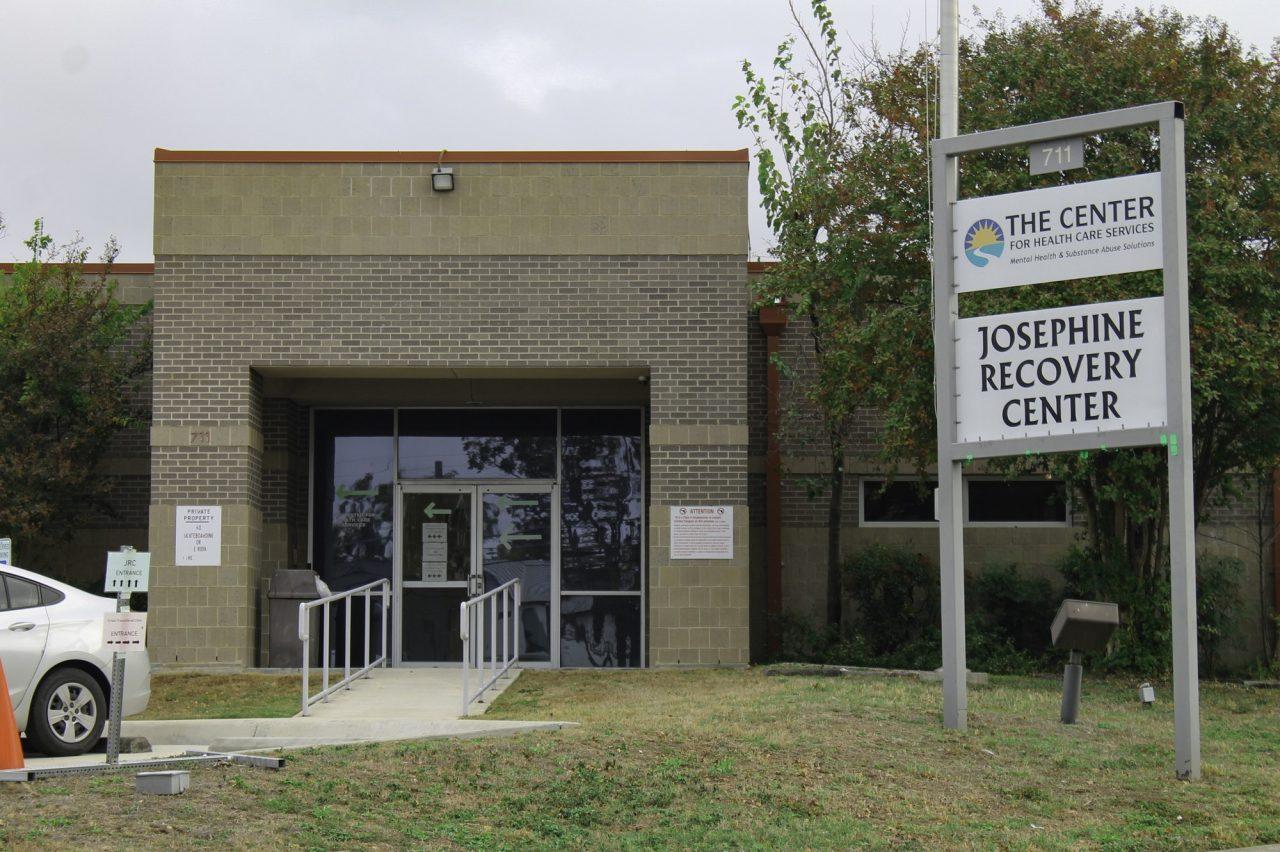Photo by Oliver Chapin-Eiserloh
At the end of Summer 2019, following a concern involving the San Antonio Sobering Unit, a past possible assault incident against a Trinity student was the topic of discussion. Both complaints were investigated and neither were substantiated with enough information. Some staff members feel the reports have given the Sobering Unit a bad reputation.
The Sobering Unit is a public city-run sobering facility, also known as the Josephine Recovery Center, where people across San Antonio are taken if found intoxicated. Students found intoxicated that do not require medical attention are taken here by TUPD. There are SAPD police officers and medical technicians to monitor the individuals transported there.
In Fall 2018, two students shared concerns with David Tuttle, associate vice president for Student Life and dean of students, about how and why a student was transported to the Sobering Unit.
In response to their concerns, Tuttle reached out to TUPD and they reviewed their body cameras and reported that appropriate procedures were followed.
According to TUPD chief Paul Chapa, the concerns brought up by the student may have been due to the situation. No further specifics were given on what the complaints were.
“I think anytime you’re placed in handcuff, and you’re in some type of crisis, which I would describe a student to be in crisis whether they were intoxicated and being transported or being cared for medically, that there will be questions and concerns of course,” Chapa said.
Nothing more came out of the concerns, and Tuttle saw it as an informative opportunity for other Trinity students.
“An outcome of all that was a recognition that students could benefit from having more information about what happens during transports. So we included that information in the summer newsletter to returning students. (It was also in the alcohol email I sent to all students in September),” Tuttle wrote in an email.
The sharing of this information sparked student discussion about the Sobering Unit. In August of 2019, residential assistants contacted Tuttle about reports of an assault there by an unspecified person, and people in Student Life, Student Involvement, Residential Life and the Title IX coordinator performed investigations.
“We worked tirelessly to try to track down the source of the information — and probably communicated with at least 10 to 15 people as we followed every lead and source. We have traced information back, but do not have evidence at this time that anything happened at the Sobering Unit,” Tuttle wrote.
These secondhand reports all told versions of the same story. The story being retold was an incident from two years ago about a single person.
“Everyone we talked to, it all came down to an incident that happened like two years ago. All those roads led back to one specific night with one specific student. But that’s not a person who has verified anything,” Tuttle said in a follow-up interview.
Trinity Title IX coordinator Angela Miranda-Clark has spoken to at least eight students during the investigation of the reports. These reports were also secondhand and testified for the same past incident.
“I have talked to several people, and nobody has been able to firsthand report a sexual assault. Somebody reported that they had heard somebody was touched, but they didn’t know where that person was touched. So maybe they were shaken on the shoulder to wake up, I don’t know. There was no further description,” Miranda-Clark said.
The Sobering Unit performed their own investigation and reviewed their videos. They found no evidence of assault on Trinity students.
While no evidence has been uncovered to substantiate past incidents, students have become distrustful of TUPD and the Sobering Unit, according to Miranda-Clark.
“In this instance, I’ve heard from several people that they’ve been told, by other Trinity students, not to ever call TUPD if they or a friend is severely intoxicated, because they would get transported to this Sobering Unit. And that’s certainly not something that I would want out there,” Miranda-Clark said.
This may be due to these rumors, according to Tuttle.
“Sometimes unsubstantiated rumors can take on a life of their own and if repeated enough people assume them to be true. In this case, it could have a chilling effect. That is, people who need this service might have friends who balk at using it based on bad information and that would be truly unfortunate,” Tuttle said.
While hearsay can be dangerous, Tuttle does emphasize the importance of reporting.
“I think these things cumulatively added to this narrative that really isn’t accurate. But I want to make sure that it’s definitely reflective that, of course, we take it seriously. We’re not saying that we don’t believe our students, it’s just that we can’t verify it. It still comes down to I heard this, I heard this, I heard this,” Tuttle said.
Chapa hopes to dispel the negative connotation surrounding seeking help from TUPD.
“If you’re in that situation and you’re in need of help, call us. We’re there to help you. That help in your interest may be a trip to detox, or it may be calling EMS, or we may not take any action other than making sure you’re with someone that can take care of you,” Chapa said. “We’re here to ensure that we are providing a solution to the situations that we’re being called to respond to.”
Two years ago, the Sobering Unit was awarded the Sobering Unit the “sTUdent Friendly” award by Student Life. The award is given to off-campus businesses that are helpful to Trinity students.













